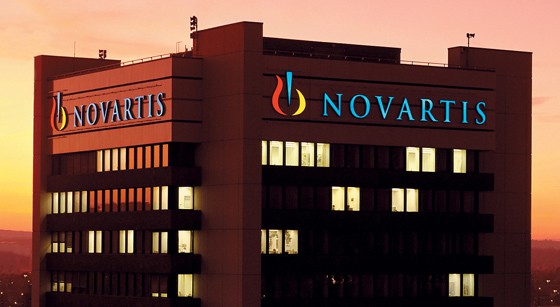
The land-grab by big pharma for assets in the fast-growing immuno-oncology sector continues apace, with Novartis joining the fray with an acquisition and two recent licensing deals.
The Swiss pharma major has bought US biopharma Admune Therapeutics, adding an interleukin-15 (IL-15) agonist programme whose lead candidate is in early-stage clinical testing for metastatic cancer. In preclinical studies, IL-15-targeting therapies have been shown to activate various white blood cells that play a role in stimulating the immune system.
Meanwhile, it has licensed rights to an adenosine receptor antagonist called PBF-509 from Spain’s Palobiofarma, also in phase I trials for non-small cell lung cancer (NSCLC), having agreed a $500m deal to license transforming growth factor (TGF) beta-targeting antibodies from US firm Xoma earlier this month.
Adenosine and TGF beta both drive immune suppression in tumours, which allows cancer cells to evade detection by the immune system.
All three of the newly-added candidates will be tested on their own and in combination with other immuno-oncology drugs in Novartis’ pipeline as well as its targeted cancer drugs, bolstered by the acquisition of GSK’s oncology portfolio for $16bn last year.
The deals bolster Novartis’ in-house portfolio of immuno-oncology candidates as it tries to catch up with the leaders in the category, namely Bristol-Myers Squibb and Merck & Co – which already have drugs on the market – and a following pack that includes Roche, AstraZeneca (AZ) and Merck KGaA/Pfizer.
The company has previously said it can take a leading position in immuno-oncology thanks to its broad presence across multiple therapeutic categories, although it has previously conceded it needs to add to its portfolio to catch up the leaders in the field.
Novartis’ lead programme in immuno-oncology is its chimeric antigen receptor T-cell (CART) candidates – headed by CTL109 which is in phase II testing for chronic lymphocytic leukemia (CLL), mantle cell lymphoma (MCL) and multiple myeloma with follow-ups in trials for brain cancer and acute myeloid leukaemia.
The company also has a myeloid cell targeting programme headed by MCS-110 in phase I trials, alongside aPD-1-targeting checkpoint inhibitor (PDR001) and another targeting LAG-3 (LAG525).
Further back in development are an anti-TIM-3 drug called MGB453 that is expected to start clinical testing by the end of the year, as well as a STING agonist (MIW815) that Novartis licensed from Aduro in a $750m deal announced in March. MIW815 and a GITR agonist should enter the clinic next year.
“The first wave of immuno-oncology therapies has demonstrated the impact this approach can have in treating certain types of tumours,” commented Mark Fishman, president of the Novartis Institutes for BioMedical Research (NIBR).
“To realise its full potential requires exploration of the complex system of biological pathways in the tumour microenvironment with agents that can stimulate the immune system to attack a wider variety of tumours,” he added.




